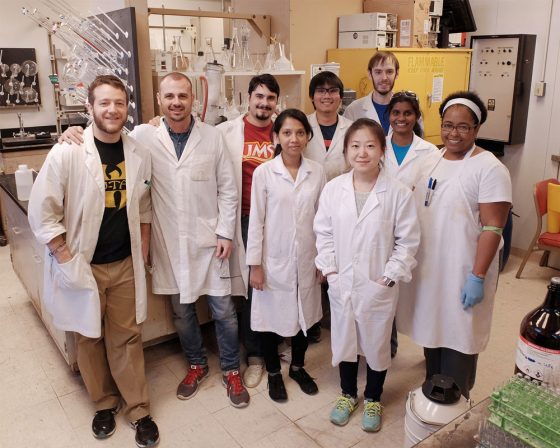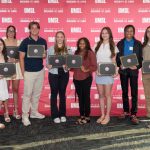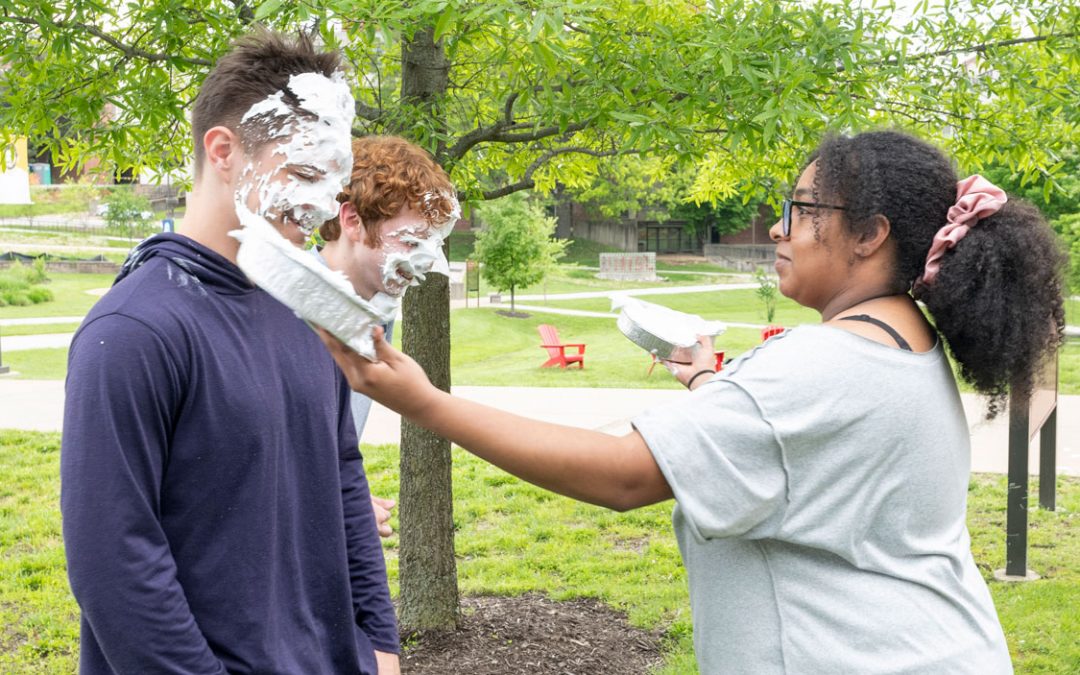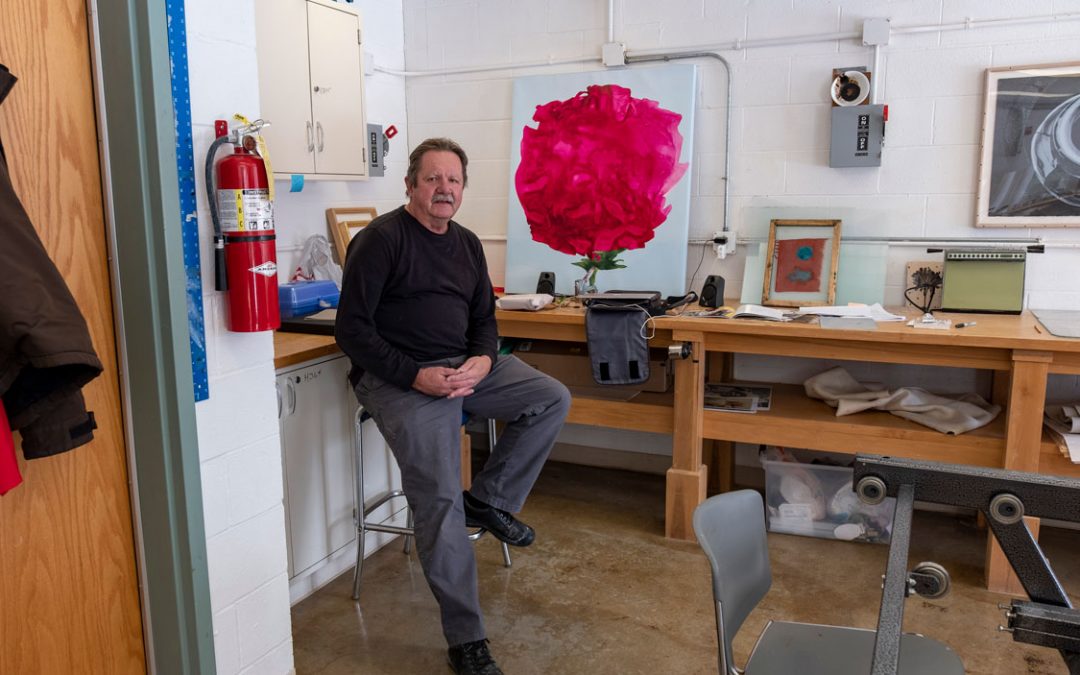
Salvatore Pistorio is graduating from UMSL this December with his doctoral degree in chemistry and has a job waiting for him as a chemist II at Monsanto. (Photos by August Jennewein)
Salvatore Pistorio has come a long way – literally all the way from Sicily and figuratively in his research – to graduate with his PhD in chemistry from the University of Missouri–St. Louis this December.
Pistorio arrived at UMSL in 2012, first as an exchange student. He returned later that year to pursue his doctoral degree in chemistry under the guidance of advisor and Professor Alexei Demchenko.
“He’s one of the best advisors,” Pistorio said. “He’s always there for you.”
In Demchenko’s lab, Pistorio’s research focuses on sugar molecules and synthesizing carbohydrates – something he never thought he would be doing especially after a prediction long ago.
“There was a professor in Italy that told me I would never work with sugar because it’s crazy, very complicated chemistry,” Pistorio said. “Four years later, here I am.”
It was a sweet deal for Pistorio, who was recruited by Demchenko during the UMSL professor’s visit to Universita’ degli Studi di Catania, where Pistorio was working on his master’s research in chemistry and pharmaceutical technologies.
Not only did Pistorio get to study stateside at UMSL, but he was also able to pursue a chemistry doctoral degree not widely available to him in Italy with full funding through a teaching assistantship and later a research assistantship in Demchenko’s lab. And of course, he got to study sugar.
“It’s a very interesting molecule,” Pistorio said. “It’s important for us for our health, and it’s involved in different kinds of processes like viral infections, bacterial infections, cell-to-cell communication and immune response.”
Right now the common way to obtain sugar molecules is through natural resources by isolation, and the recreation of them isn’t so simple.
“Making sugar is very complicated,” Pistorio said, “but we showed that we can do it by solid phase chemical synthesis using an HPLC [High-Performance Liquid Chromatography] as a synthesizer. It’s really something. No one can do that like we do.”
The HPLC is used to separate, identify and quantify each component in a solvent or mixture, allowing organic chemists like Pistorio to determine possible modifications to structure.
“The isolation from natural sources doesn’t give you the opportunity to make modifications to the structure,” Pistorio said. “But if you have the synthetic way, you can do any modification you want. And the HPLC synthesizer developed in our laboratory allows us to obtain molecules in automation and in easy fashion.”
Those modifications could allow for the creation of future medications that help patients suffering with diabetes, cancer, HIV and other diseases where sugar’s impact on immune response and increased insulin levels is crucial.
Pistorio’s research has resulted in eight academic publications and presentations, earned him a patent disclosure and now helped him land a job at Monsanto prior to graduation – though he’s quick to give credit to a connection he made in a UMSL lab who encouraged him to apply.

Pistorio (second from left) is joined by the rest of the students that make up Professor Alexei Demchenko’s lively lab. The extremely friendly group is one thing Pistorio said he will miss after graduation.
Pistorio will be a chemist II, or process chemist, for the St. Louis-based agrochemical and agricultural biotechnology corporation and has been tasked with reproducing small scale lab results in a large scale way that will allow Monsanto to bring solutions to production.
“I imagine I’m going to be using a lot of the HPLC work and skills,” said Pistorio, who noted the focus of his future role hasn’t been disclosed to him, so he’s unsure if he’ll continue his work with sugar.
Pistorio says staying in St. Louis for work is a positive, despite his missing the authentic Italian food from home and the Mediterranean seaside. Adding to the list of things he will miss is something a little more local – his UMSL lab family.
“It’s always friendly in the lab,” Pistorio said. “I’m going to miss the people. We are not only Americans or only Europeans. There is any part of the globe inside our lab – from Asia to Europe to the Americas. That’s one of the beautiful things that’s in the U.S. I go for lunch, and I sit at a table with an Indian guy, an American and a Russian. In Sicily, we only have Italians.”















